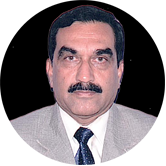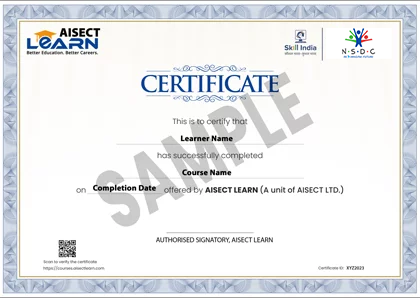Diploma in Food Processing
Self-Paced
Fee: ₹6,499
 Dr. Abhipsa Khobragade | Dean Faculty
Dr. Abhipsa Khobragade | Dean Faculty
To understand the concept of Food Processing from past and future perspectives. To know about the various methods used in food processing. To get acquainted with various technologies used for fruits and vegetable processing. Knowledge of Food Chemistry by knowing various constituents of food. Awareness regarding techniques in food analysis/ Study of quality assurance and quality control related to food processing. Study of various food packaging technologies and labeling techniques.
Working through food product development stages to design new products.
Objectives
What Will You Learn
Skills you will gain
Curriculum
-
Paper 1 - Introduction to Food Processing
-
Chapter 1 - Scope of food processing
-
Chapter 2 - Historical development
-
Chapter 3 - Utility of food processing
-
Chapter 4 - Food preservation
-
-
Paper 2 - Methods of Food Processing
-
Chapter 1 - Processing and preservation by heat- blanching, pasteurization sterilization and UHT processing, canning, extrusion cooking, etc.
-
Chapter 2 - Processing and preservation by low-temperature –refrigeration, freezing
-
Chapter 3 - Processing and preservation by dry, concentration, and evaporation
-
Chapter 4 - Processing and preservation by non-thermal methods
-
Chapter 5 - Use and application of enzymes and microorganisms in processing and preservation of foods and safety aspects.
-
-
Paper 3 - Technology for Fruits and Vegetables Processing
-
Chapter 1 - Indian and global scenario on production and processing of fruits and vegetables; Quality requirements of raw materials
-
Chapter 2 - Processing for pulp, puree, and concentrates
-
Chapter 3 - Technology for processed products like pickles, chutneys, and other regional fruits and vegetables of importance.
-
Chapter 4 - Processing of fruits for candies, bars, toffees etc. locally available and other under-utilized fruits.
-
Chapter 5 - Dehydration of fruits and vegetables using various drying technologies like sun drying, solar drying
-
-
Paper 4 - Food Chemistry
-
Chapter 1 - Definition and importance; major food constituents and their physicochemical properties
-
Chapter 2 - Carbohydrates, proteins, and lipids classification, physical, chemical, nutritional, and functional properties.
-
Chapter 3 - Properties of minerals, vitamins, pigments, anti-oxidants, flavor components, allergens, toxins, and anti-nutritional factors in foods;
-
Chapter 4 - Food groups and their typical composition; essential nutrients- sources, functions,
-
-
Paper 5 - Technique in Food Analysis
-
Chapter 1 - Sampling techniques
-
Chapter 2 - Spectroscopic techniques
-
Chapter 3 - Chromatographic techniques
-
Chapter 4 - Separation techniques
-
-
Paper 6 - Food Quality Assurance and Quality Control
-
Chapter 1 - Concept of quality attributes- physical, chemical, nutritional, microbial, and sensory; their measurement and evaluation
-
Chapter 2 - Concept of quality management
-
Chapter 3 - Quality assurance, Total Quality Management GMP/GHP; GLP, GAP; Sanitary and hygienic practices; Food adulteration and food safety. IPR and Patent.
-
-
Paper 7 - Food Hazards
-
Chapter 1 - Growth and survival of microorganisms in foods; Physical and chemical methods to control microorganisms.
-
Chapter 2 - Biochemical changes caused by microorganisms
-
Chapter 3 - Food hygiene and sanitation
-
Chapter 4 - Food fermentation; Fermented beverages.
-
-
Paper 8 - Food Packaging and Labelling
-
Chapter 1 - Definitions, objectives, and functions of packaging and packaging materials
-
Chapter 2 - Properties of materials
-
Chapter 3 - Food packaging systems
-
Chapter 4 - Packaging equipment and machinery
-
-
Paper 9 - Food Drying and Storage
-
Chapter 1 - Moisture content and its determination
-
Chapter 2 - Study of drying and dehydration of agricultural products.
-
Chapter 3 - Types and causes of spoilage in storage.
-
Chapter 4 - Storage condition for various fruits and vegetables under cold, CA, and MAP storage
-
Instructor

Dr. Abhipsa Khobragade
Dean (Department of Agriculture) Faculty(Department of Agriculture)The course co-ordinator has an experience in academics and research. She has worked in Teaching and has also worked in a ICAR Funded Research project. Presently she is working as an Assistant Professor at RNTU, Bhopal at Department of Agriculture. She has done various trainings at Central Farm Machinery Training & Testing Research Institute (An I.S.O.9001-2015 Certified Organization), Pune Zillha Sahakari Dudh Utpadaka Sangh Maryadit, Experiential Learning Unit (AICRP on PHET, Dr. PDKV, Akola) and at Central Institute of Agricultural Engineering, Bhopal. She has done research projects on Hydroponic Technology and Modification and performance evaluation of mini oil mill.

Dr. Anil Kumar Kurchania
Dean (Department of Agriculture) Faculty(Department of Agriculture)Dr. Anil Kumar Kurchania working as Dean, Faculty of Agriculture in Rabindranath Tagore University, Bhopal and also looking after Centre for Renewable Energy, Rabindranath Tagore University, Bhopal as Director since March, 2017.
Still have queries? Talk to our counselors who are available to guide you
Shareable Certificate

Other Details
 Credentials
Credentials Associated Courses
 Instructor:
Instructor:
 Duration:
Duration:
 Course Credit:
Course Credit:
 Certification Body:
Certification Body:
 Language:
Language:
 Access:
Access:
 Shareable Certificate:
Shareable Certificate:
